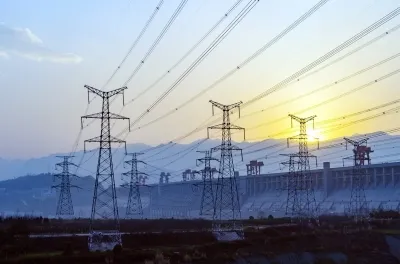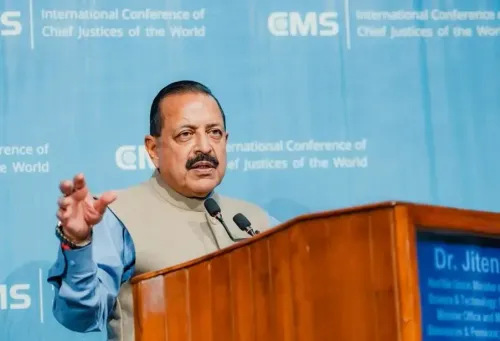Will India’s electricity demand really triple to 4 trillion units by 2035?

Synopsis
Key Takeaways
- India's electricity demand is projected to reach **4 trillion units (TWh)** by **2035**.
- Key sectors driving this demand include **electrical vehicles**, **data centres**, and **railways**.
- Significant investments in energy infrastructure and renewable energy are anticipated.
- Per capita electricity consumption is expected to nearly double by **2035**.
- Commercial sectors will see a **4.4x increase** in electricity consumption by **2035**.
Mumbai, June 27 (NationPress) India is poised for an astounding three-fold increase in electricity demand, projected to reach 4 trillion units (TWh) by 2035. This surge is primarily propelled by industrial growth, urban expansion, and the electrification of transport, as highlighted in a report released by OmniScience Capital on Friday.
The report indicates that by 2035, three transformative sectors -- electric vehicles (EVs), data centres (DCs), and railways -- are expected to emerge as the largest electricity consumers, collectively utilizing 500 TWh of energy, which represents approximately 12-13 percent of India’s anticipated total electricity demand of 4 TWh.
This significant shift underscores a changing energy landscape in India, where traditional consumption patterns are now being complemented by these innovative sectors.
The transition to cleaner energy sources is vital for a sustainable future; initiatives and policies such as Net-zero goals, 500 GW Renewable energy targets, EV adoption, and the rooftop solar initiative are pivotal in driving this change, according to the report.
Furthermore, the report predicts that India’s per capita electricity consumption will nearly double from 1,400 kWh in 2024 to 2,575 kWh by 2035. This growth can be attributed to factors such as rapid economic expansion, increasing urbanization, and rising household incomes.
Ashwini Shami, EVP at OmniScience Capital, stated: “India's electricity demand reaching four trillion units by 2035 signals the nation's accelerating industrial growth, digital transformation, and enhancement in quality of life. This trend opens up substantial investment opportunities in energy infrastructure, renewable energy, and grid modernization.”
As urban migration continues and households adopt energy-intensive appliances, along with industrial growth driven by initiatives like 'Make in India', electricity demand is anticipated to skyrocket. The focus on digital infrastructure, electric vehicles, and rural electrification is expected to further boost consumption.
Moreover, India’s shift toward cleaner, more accessible energy will render electricity more affordable and widely available, driving consumption across all sectors.
India’s commercial and other sectors are evolving into significant contributors to electricity demand. Consumption in these areas is forecasted to jump from 181 TWh in 2023 to 798 TWh by 2035, representing a 4.4x increase and a CAGR of 13.2 percent -- the second-fastest growth among all sectors. This escalation is likely to increase their share to nearly 20 percent of total electricity consumption, reflecting the nation’s swift transition to a service-driven, digitally connected economy.
The transportation sector, particularly EVs and railways, is on track to become the fastest-growing electricity consumer, with projections indicating an increase from 25 TWh in 2022 to 162 TWh by 2035, growing at a CAGR of 16.8 percent. Key factors driving this shift include the rapid adoption of electric vehicles, the development of charging infrastructure, and the electrification of railways, as noted in the report.









